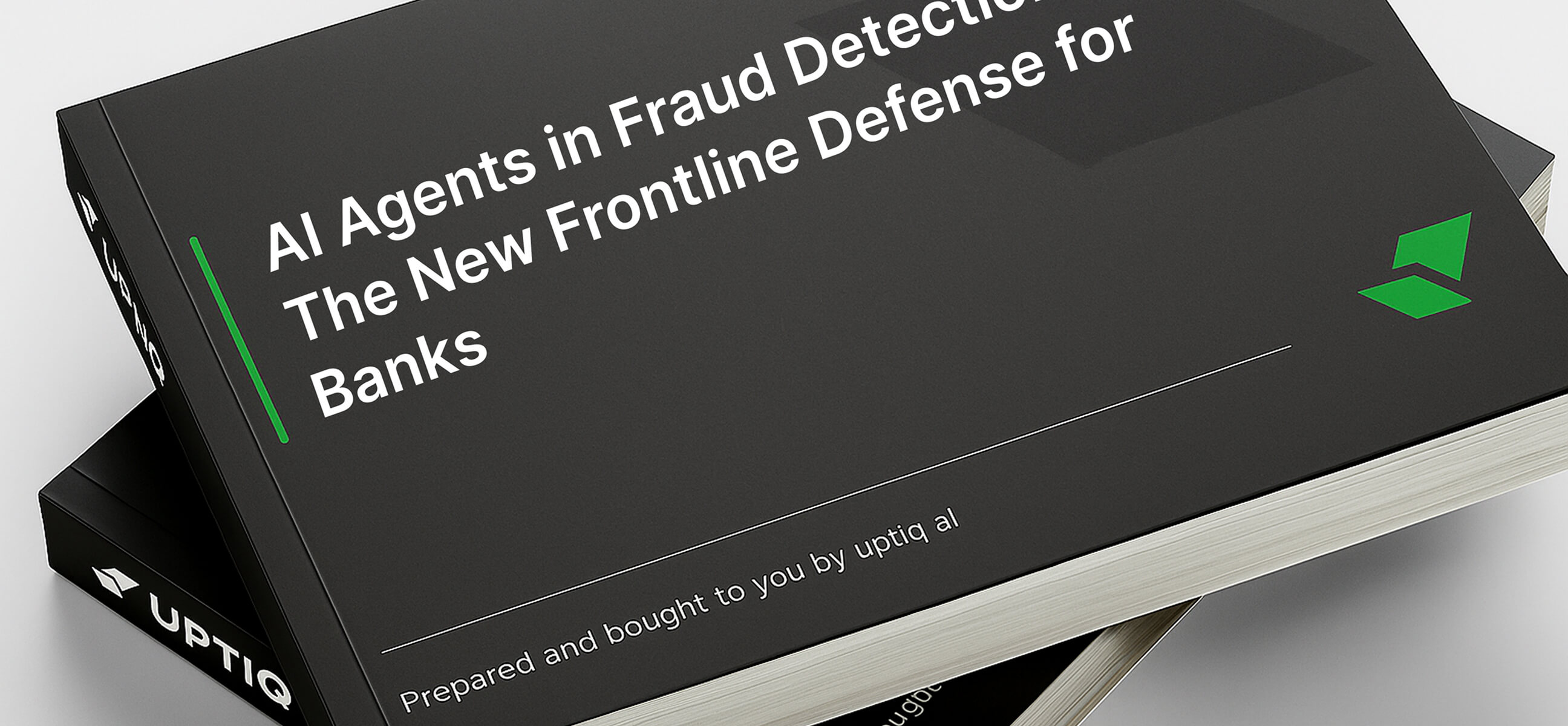Series B:
Uptiq raises $25M to add AI agents to bank workflows
Read More
-


Fraud is no longer a rare event, it’s an everyday battle for banks and financial institutions.
With the rise of digital transactions, mobile banking, and real-time payments, fraudsters are becoming more sophisticated, using synthetic identities, phishing schemes, account takeovers, and even deepfakes to exploit weaknesses.
Traditional fraud detection models, largely rule-based and reactive, struggle to keep up with these evolving tactics.
What banks need is a solution that is proactive, adaptive, and intelligent.
Enter AI agents. These self-learning, always-on digital tools are emerging as the frontline defense for banks against modern fraud.
Most legacy fraud detection systems rely on fixed rules (e.g., block transactions above a certain threshold). While useful, these systems:
Consumers want instant transfers and seamless experiences, but they also demand fraud prevention in milliseconds. Legacy systems simply can’t keep up.
AI agents bring a new paradigm to fraud detection. Instead of relying on static rules, they use machine learning, behavioral analytics, and adaptive intelligence to identify threats in real time.
Example: A client who usually transfers $5,000 monthly suddenly initiates a $100,000 overseas wire. An AI agent flags the anomaly, requests secondary authentication, and stops potential fraud, without halting normal transactions
Fraud detection isn’t just a security function, it’s a differentiator in modern banking.
No system is 100% perfect, but AI drastically reduces fraud risk and adapts faster than traditional models.
Rule-based systems rely on predefined conditions. AI agents predict and adapt, identifying new fraud tactics that rules can’t.
No. AI agents process data in real time, ensuring seamless customer experience.
Not compared to the cost of fraud losses. Platforms like Uptiq make AI-driven fraud detection scalable and cost-effective.
Yes. Uptiq’s AI fraud detection solutions integrate easily without overhauling infrastructure.
Fraud in banking is evolving, but so is AI. By deploying AI agents, banks gain a real-time, adaptive, and intelligent frontline defense.
Not only do they protect assets, but they also build customer trust, reduce costs, and future-proof their institutions.
Want to see how AI agents can strengthen your fraud detection strategy? Book a Demo with Uptiq.